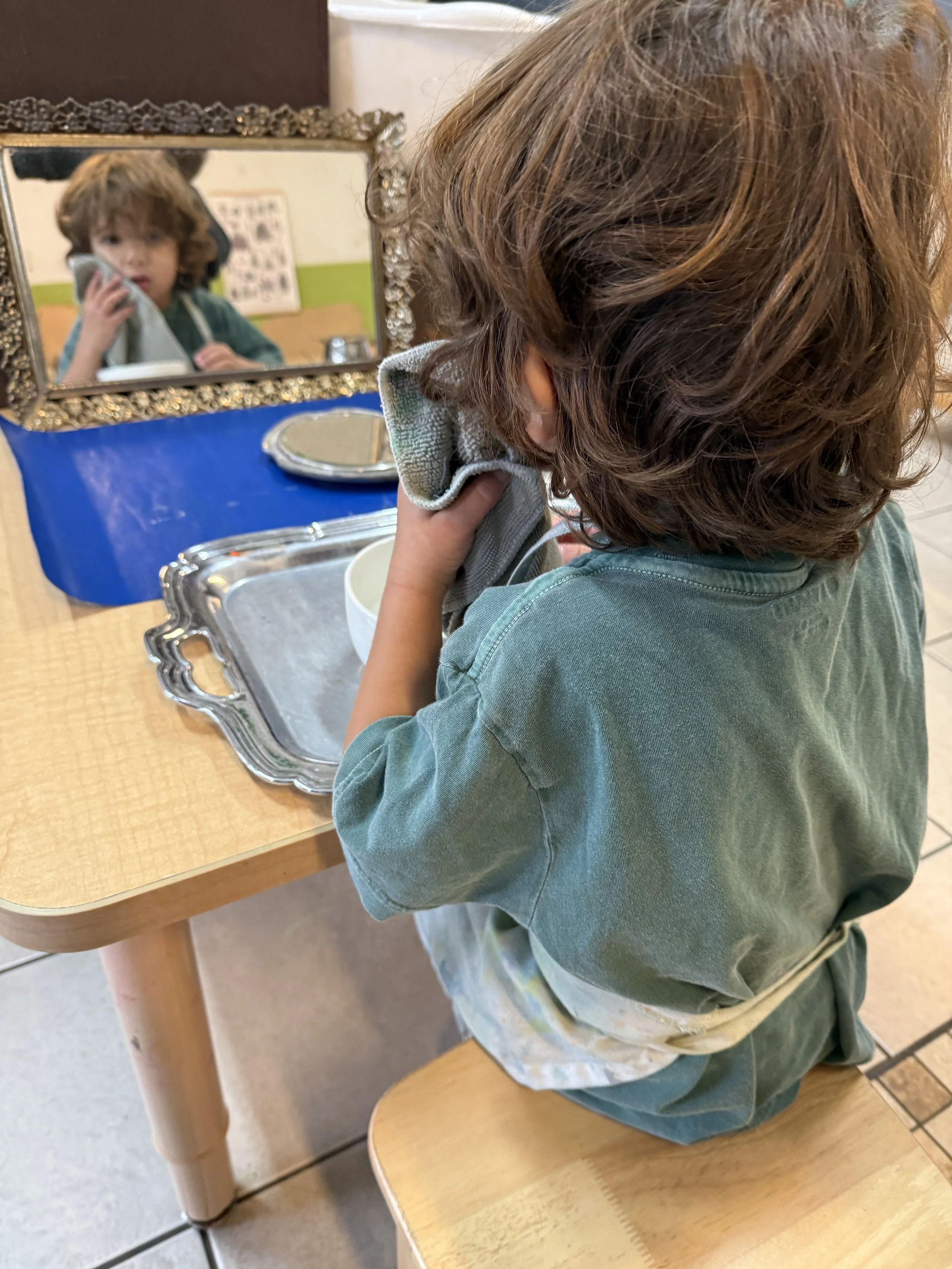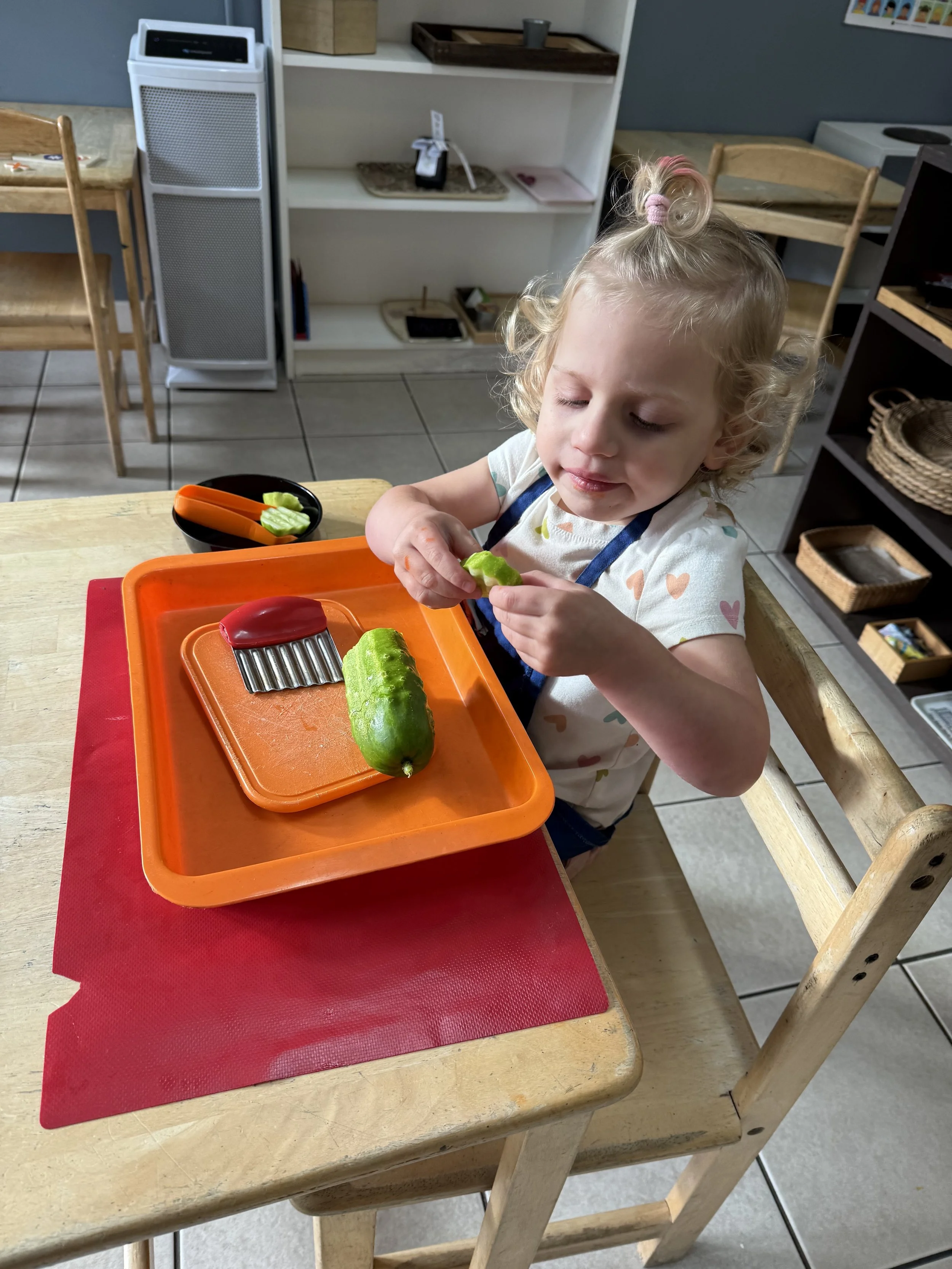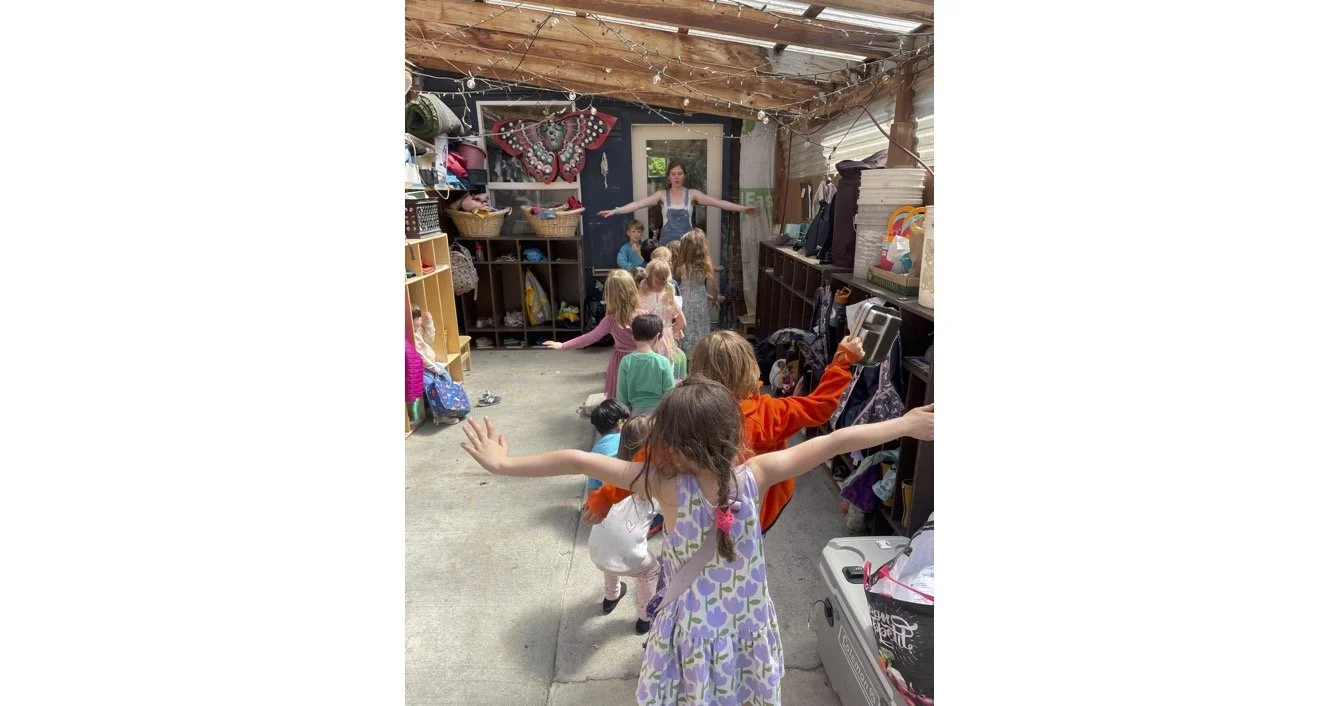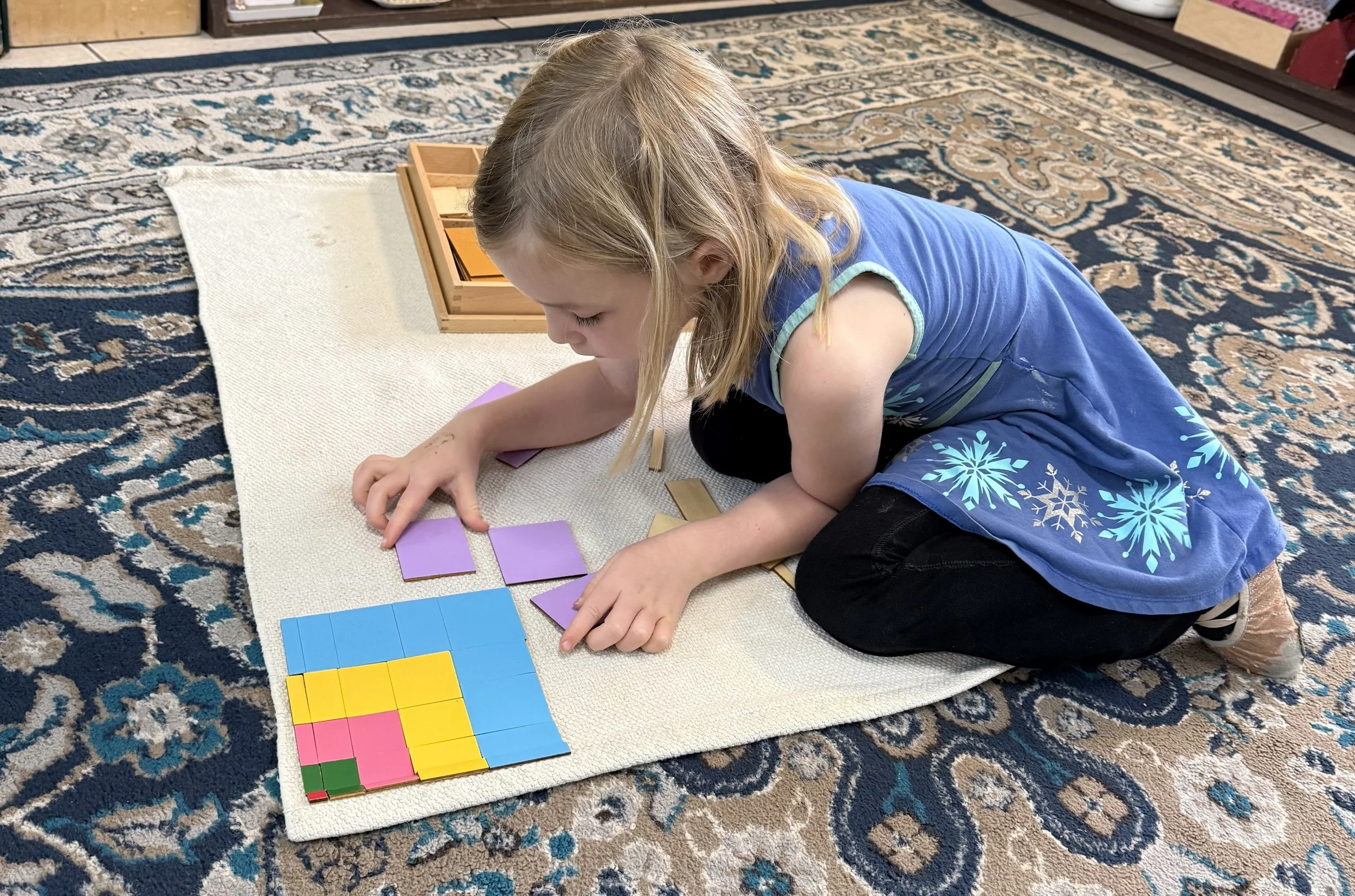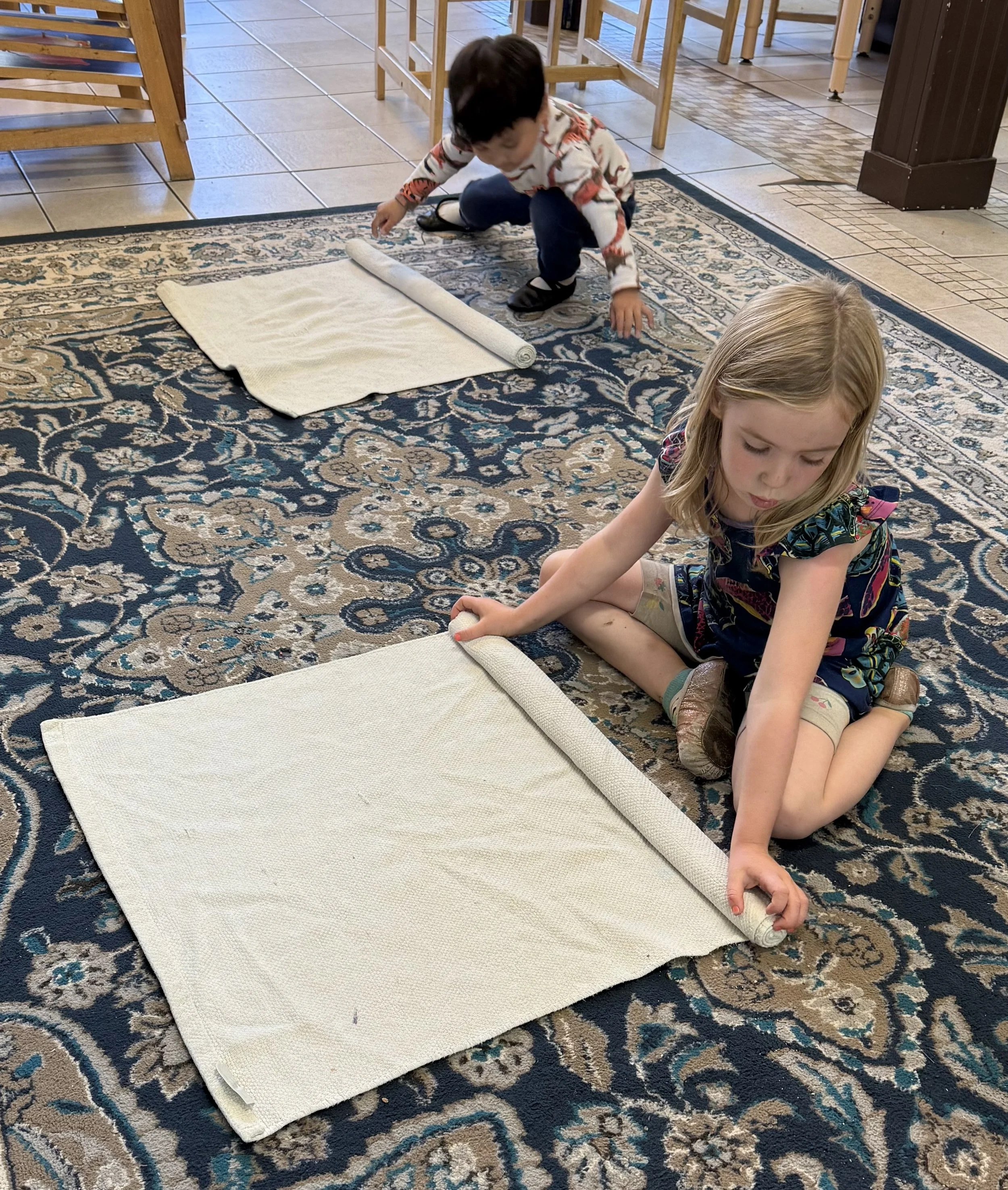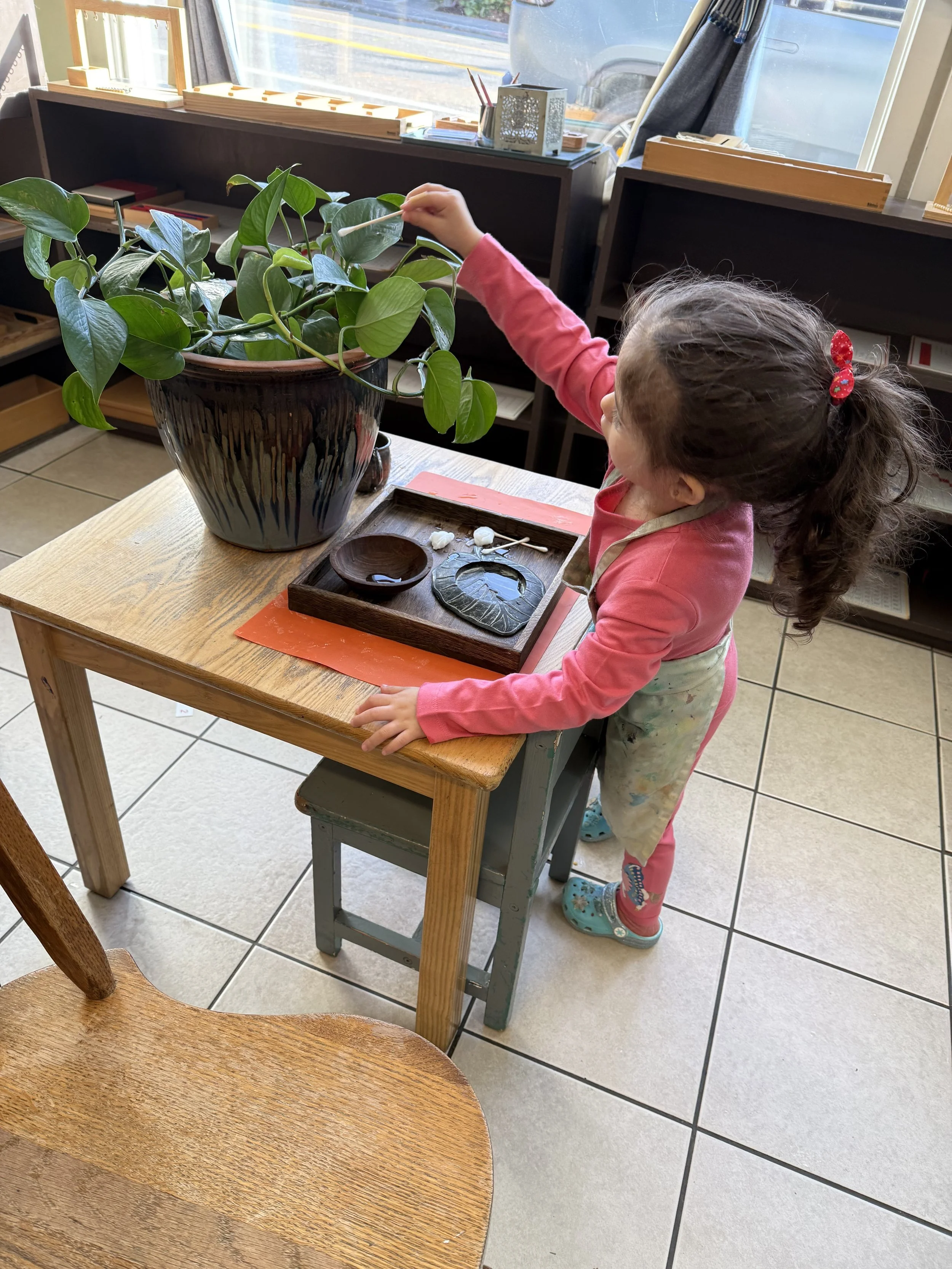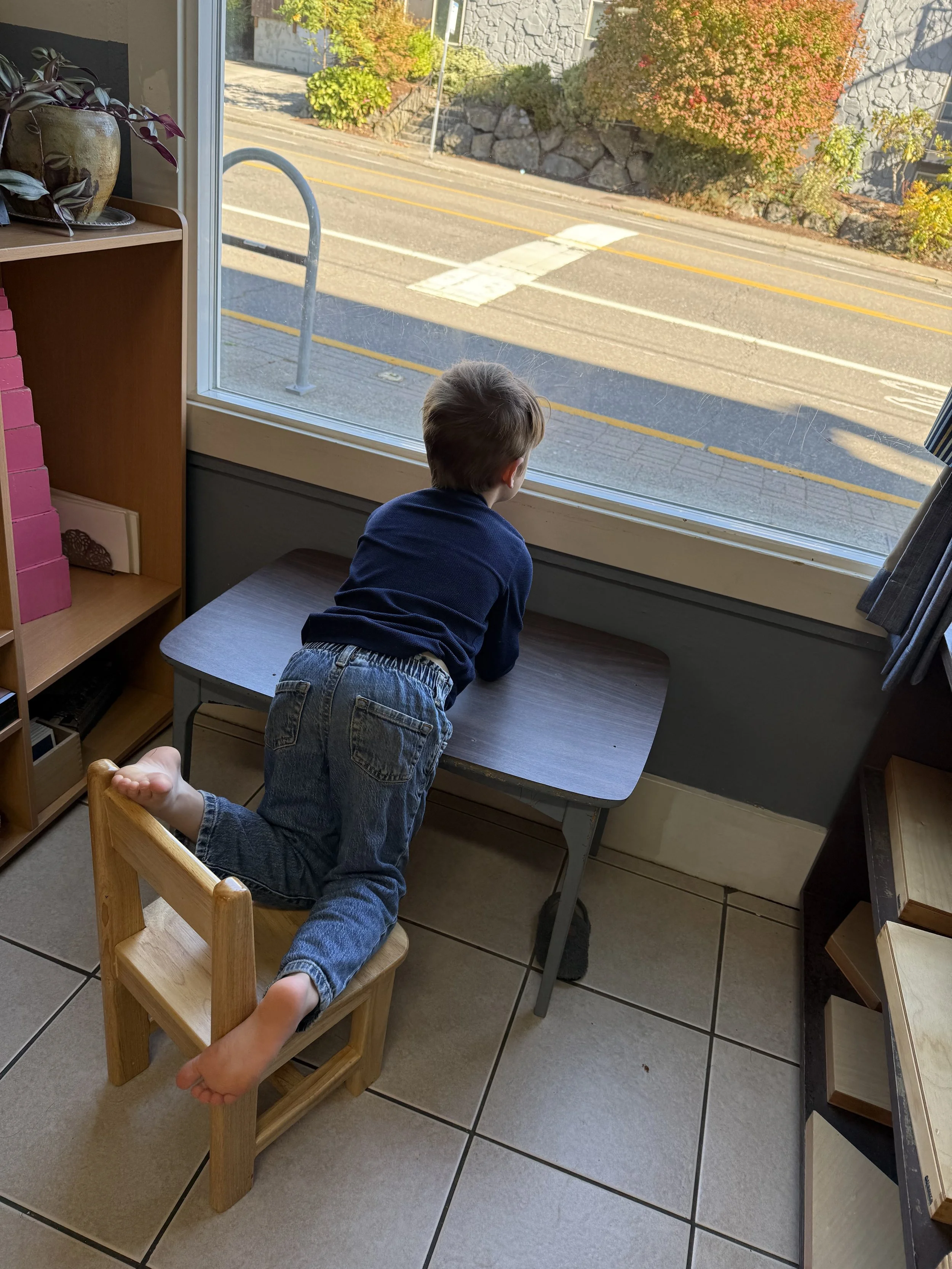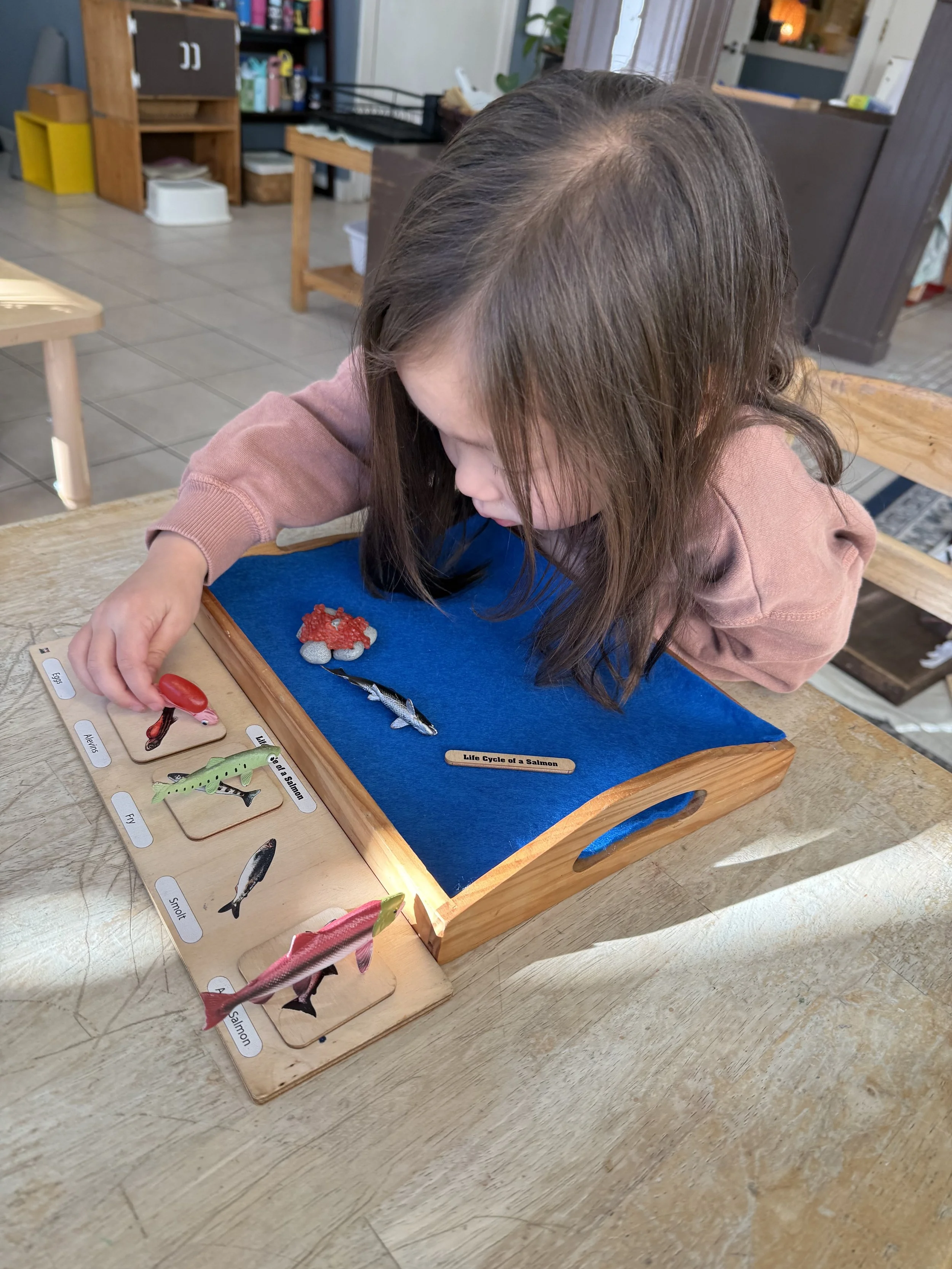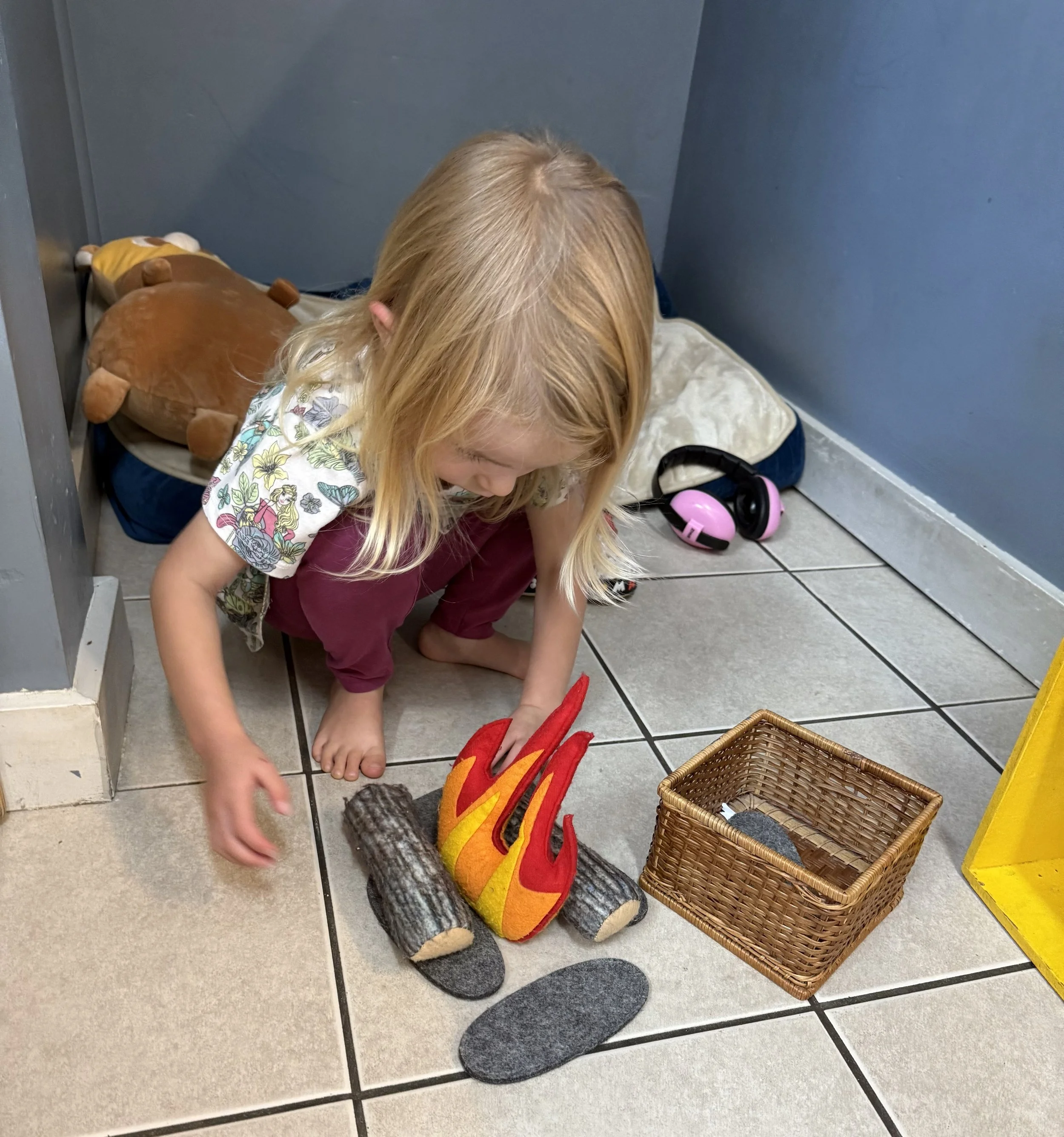Spiritual Development
by Regan Becker
“The satisfaction which they (the children) find in their work has given them a grace and ease like that which comes from music.” — The Discovery of the Child by Dr. Maria Montessori
Practical Life: Grooming — Washing One’s Face
Dr. Montessori described the spiritual aspect of a child as a “psychological attitude to himself and his life, within the environment, with others, how his personality is shaped by experience, and how experience leads to changes within himself.”
Dr. Montessori's most revolutionary act as a scientist and educator was her reverence for the child. Unlike other educational models, which consider children as a product of distributed information, Montessori education considers each student as an individual learner whose spirit is unique, whose time has value, and whose skills are informed by experience. Montessori education is special, because it allows the child to determine their own learning from an abundance of experiences.
Practical Life: Cutting and Serving Food
Dr. Montessori noted of the adults in the classroom, “It is not enough for the teacher to love the child. She must first love and understand the universe.” In our Montessori teacher trainings, this is often referred to as “The Spiritual Preparation of the Guide” – the ability to inspire is not performative but results from an inner curiosity about and care for the world. Through the guides’ spiritual preparation, they Prepare the Environment to allow for wonder and exploration.
Adult leads a breathing exercise as a transition from outdoor play to indoor lunch.
“The child must live in an environment of beauty.” – Dr. Maria Montessori
EXPERIENCE & PURPOSE
In her book To Educate the Human Potential, Dr. Montessori wrote, "All things are part of the universe and are connected with each other to form one whole unity. This idea helps the mind of the child to become fixed, to stop wandering in an aimless quest for knowledge."
Math: The Decanomial (aka The Table of Pythagoras)
As Dr. Montessori said, "work normalizes the child" through purposeful activity, in a calm atmosphere, within a prepared environment, and using hands-on materials. Care for the environment allows a child to make discoveries about the world, share thoughts and feelings with peers, and become a balanced, peaceful person. School is a place for learning not simply about academics, but about social conventions, communication, and caring for others in a community. This is one of the reasons that Practical Life and Sensorial curricula are so meaningful at ages 3-6. Students love learning in a Montessori classroom, because it is a place that values their input.
“The things he (the child) sees are not just remembered. They form part of his soul.” – Dr. Maria Montessori
CONCENTRATION & ORDER
"The more the capacity to concentrate is developed, the more often profound tranquility in work is achieved and the clearer will be the manifestation of discipline within the child." – Dr. Maria Montessori
Practical Life: Rolling and Unrolling a Work Rug
One of the physical components of a Montessori classroom -- the Prepared Environment -- exists mainly to assist the spiritual life of the child. Materials are placed in an orderly and sequential manner on shelves within the child's reach so that they may freely select and manipulate objects. The classroom is beautiful and simple, and the child works where he/she desires -- on a work rug or at a table -- with ultimate control over a preferred mode of learning. The Montessori classroom is rarely silent yet hums like a beehive, students respecting one another's work without disrupting the flow of a concentrating mind.
“At some given moment, it happens that the child becomes deeply interested in a piece of work; we see it in the expression on his face, his intense concentration, the devotion to the exercise.” — The Discovery of the Child by Dr. Maria Montessori
SENSES AND NATURE
The importance of children connecting their senses to the natural world cannot be overstated, especially when media has become an increasingly large part of family lives. Montessori children learn about the parts of a plant not simply through using wooden puzzles, tracing the segments, and labeling the names, but by going out into the habitat classroom, weeding in a garden, and walking the beach at Golden Gardens with classmates.
Practical Life: Washing the Leaves of a Plant
Dr. Montessori declared that “education becomes a matter of helping the precious energies that manifest themselves with irrepressible force, for the soul is not a stone for sculpting according to the artist’s talent but is free energy whose expression and unfolding obeys its own inner laws”.
Recent scientific studies by the National Wildlife Federation suggest that going out into nature calms a child's stress level, increases fitness, reduces symptoms of ADHD, increases critical thinking skills, diminishes anxiety and depression due to over-structure and lack of free time, and enhances social interactions. The NWF also asserts that children now spend less than one hour per week in nature, as opposed to thirty hours per week indoors, sedentary, and viewing media. Montessori education allows for freedom of movement and incorporates nature in the daily classroom.
“Adults move because their will directs them. The small child is urged by nature.” – from Dr. Maria Montessori’s 1946 London Lectures
Sensorial extension: Life Cycle of the Salmon
Over a century ago, Dr. Montessori demanded that "education should no longer be mostly imparting of knowledge but must take a new path, seeking the release of human potentialities." Montessori education adapts to and honors all aspects of the child. Dr. Montessori understood the spiritual life of the child, whom she described as "an enigma. There is in the soul of a child an impenetrable secret that is gradually revealed as it develops." The child is the keeper of the secret, and contact with the natural world gives the child a safe place to share that secret — thereby releasing the power of the child's energy into our collective future.
“As we observe children, we see the vitality of their spirit, the maximum effort put forth in all they do, the intuition, attention and focus they bring to all life’s events, and the sheer joy they experience in living.” — The Child, Society and the World by Dr. Maria Montessori

